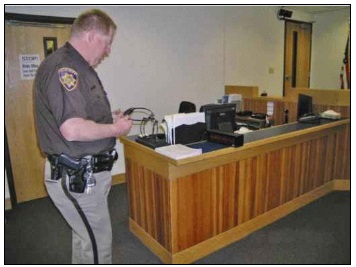Common Problems with Communication
Ø Information is often available in only standard print format.
Ø Public meetings are often held without audio amplification or sign language interpreters, real-time transcription services, etc. As a result, those who are deaf or hard of hearing may not be able to participate fully in live presentations or interactive discussions, such as county commissioner meetings.
Ø 9-1-1 systems are not equipped with TTY's (teletypewriters) or equivalent technology at each call-taking station, or operators do not consistently query all silent calls to determine if they are TTY calls.
Local governments must ensure that the way they communicate with the public is as effective for people with disabilities as with others, unless doing do would impose an undue burden or cause a fundamental alteration.
-
Make all your written materials that are prepared for public distribution available in accessible formats such as large print, Braille, audiotape, and digital formats (i.e., via email or screen-readable format on computer diskette).
-
Provide qualified sign language interpreters, real-time captioning, and assistive listening devices when appropriate upon request.
-
Update your technology and train your staff to treat all silent calls as potential TTY calls. See "Access for 9-1-1 and Telephone Emergency Services"

A court officer checks assistive listening devices for people who are hard of hearing to make sure the devices are working properly.

User Comments/Questions
Add Comment/Question